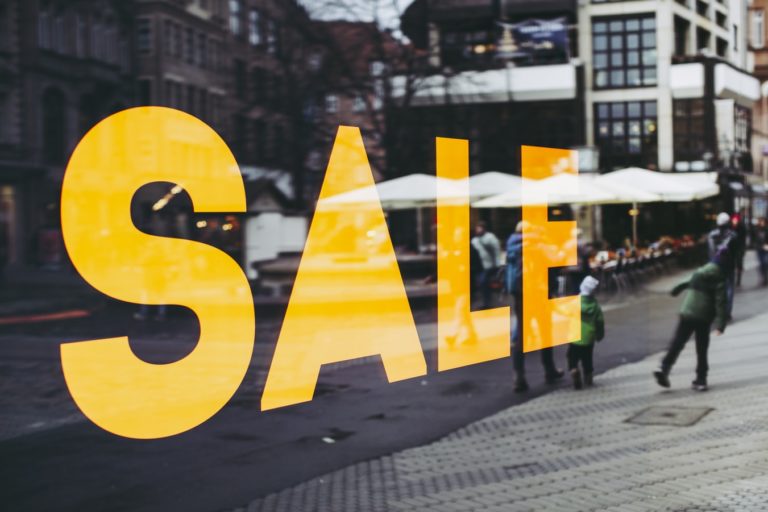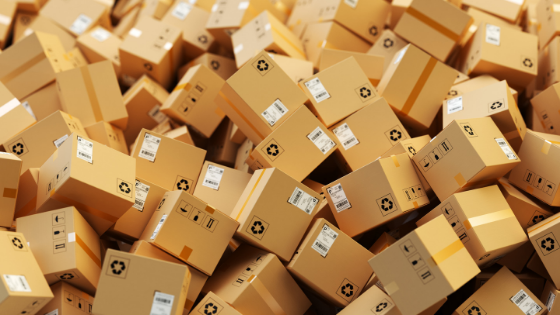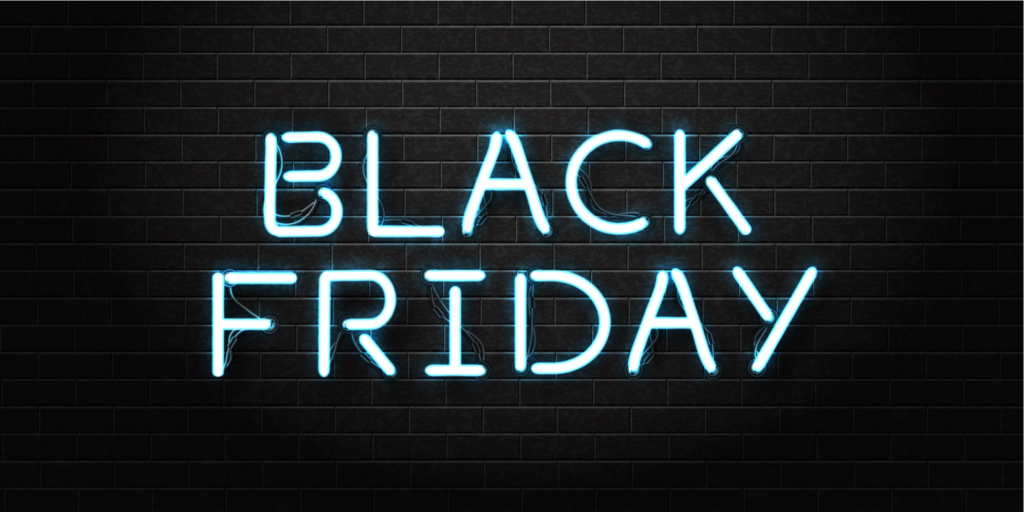How to successfully prepare for Peak in the face of uncertainty.
The last quarter of the year is, traditionally, the busiest and most profitable time for eCommerce, however, the sequence of events that continues to unfold in 2020 means that we may be looking at a very different Peak Period this year.
How might the sales events of Black Friday, Cyber Monday, Singles Day, Christmas and the Boxing Day sales change this year? And how can retailers (big and small) begin to prepare?
The retailers that nail Peak season are the ones that start preparing in the summer, but with the pervading level of uncertainty, you’d be forgiven for not quite knowing where to start.
This blog will look at what we do know and don’t know and how best to prepare in order to get ahead of competitors for Peak.
Shopping habits have changed
Research strongly indicates that the effects of lockdown will permanently change UK consumer behaviour.
- 74% growth in online shopping since Covid-19 began
- 45% of UK adults have received more parcel deliveries during coronavirus lockdown than before
- Two-thirds of adults say they will continue both current levels of spend (66%) and the frequency (68%) they shop online post-lockdown, while 26% said they will increase their digital spend after restrictions are lifted.
So what does this mean for Peak 2020?
Many people who hadn’t discovered online shopping have now ventured into this world. Online retailers are also seeing increased engagement from older demographics.
Considering that the in-store crowds and rushes like Black Fridays of the past will not be possible or safe due to social distancing and the continuing threat of the virus.
Quite simply there are more online shoppers than ever. So it becomes a question of who gets a slice of the pie and how big?
Amazon reported that Cyber Monday 2019 was the biggest shopping day in their history with more items being purchased from third-party sellers as ever before.
In 2019 there were 7.5 million online searches in the UK on Black Friday alone.
Dig into the data to drive your strategy.
The strategy for peak must be data-driven. Examine the shopping behaviour of your customers in granular detail and use this to create a rock-solid strategy for this year.
The UK’s retail audience has changed, so find out who is coming to your store, knowing the statistics means you can target accurately.
For established retailers drilling into the data can tell you what drove the most conversion during last years peak. For new players examining the shopping behaviour during lockdown can help you to plan to get the right products in front of the right people at the right time.
27% of retailers said their marketing strategy was based mostly on instinct, versus 13% saying it was mostly based on data, and 60% saying it was a balance of the two. In these uncertain times, data is your friend.
Step up your communication with consumers.
Traditionally early Peak season began in October but the run-up begins in July, with Amazon Prime Day now happening in September, Peak prep should be at the top of everyone’s agenda.
Now is the time to enhance the brand message to appeal to the post-pandemic shopper consider your messaging about family, health, safety and sustainability.
Enhance the level of communication with consumers, look at targeted influencer campaigns and social-media spending. Consider teaming up with complementary brands — the “peanut butter and jelly” approach will drive success for both brands.
It is possible to cut through the white noise of the retail giants, a quarter of online shoppers in key European markets will choose to shop with smaller, niche retailers.
By being shrewd and agile at this time, smaller merchants can stand out from the crowd by getting as specific as possible with offers that go beyond discounts. Show you really care about your customers and what’s important to them.
Marketing for seasonal sales is all about personalisation, really knowing your customers and creating tailor-made offers for them. Creative, segmented campaigns that target the different buyer personas at various stages of the peak period will drive higher conversion than discounting across the boards. Price slashing will be so typical that shoppers have the luxury of shopping around online for the best deals.

Website and ecommerce systems health check.
Peak period can mean up to 10 times higher volumes than normal trading however some retailers have seen Back Friday levels of orders during Covid-19.
These volumes can put pressure on your eCommerce systems, so you need to be certain that you can meet demand whether its during Peak or a Pandemic. Prepare so you can prevent system crashes, site outages, slow load-times etc failure to do so will cause revenue and reputation damage.
71% of UK shoppers shopped on their smartphones during Cyber weekend last year, so optimising your site for mobile is a must.
- Evaluate the limitation of your website and infrastructure
- Identify the risks
- Implement targeted action to mitigate risks and deliver results
- Test your infrastructure to ensure it’s robust; there is no excuse for downtime!
- Ensure your payment platform can withstand the influx of transactions
- Be prepared to fulfil International orders
- Optimise user experience
- Provide a seamless checkout for mobile users as well as other devices.
- Boost Customer service availability, by making make use of chatbots and live agents for efficiency.
Consider the older demographics that are now shopping online, assess the accessibility of your eCommerce site. This, in turn, will lead to better customer experience, returning customers and increased sales.
Discounts and distrust.
Last year only 1 in 10 Cyber Weekend deals were genuine discounts.
Only 45% of UK shoppers cited discounts as the most desirable feature during online Black Friday sales. 65% of UK shoppers report that they are distrustful of sales.
However, the hype around sales and ‘fear of missing out’ brings even the most sceptical consumer online at this time to browse the bargains but its the added value incentives that drive conversion and customer retention.
So what does that mean when it comes to sales promotions?
This is where niche retailers and smaller retailers can compete against more prominent brands. Over a quarter, 27%, of UK shoppers say they prefer other incentives to price slashing. So what are the alternative offers that appeal to even cynical customers?
- Loyalty and referral bonuses
- Extended returns periods
- Free shipping, Next day delivery and Click & Collect options
- Discounts attached to an exclusive product range, unique and niche items.

Attract to retain.
This ultimate goal of peak rather is more about customer acquisition and retention than short term profit and hitting high volumes
Each year, the discount period lasts longer and gets more aggressive, so your eCommerce store needs to be adaptable to compete.
To compete with the brand behemoths its smart to segment and target customers more effectively throughout the peak period. Create a tiered system of your customers so you can spread the offers out, identify your most valuable customers and offer them the most substantial discounts first rather than a blanket discounting across your store. After that, the second tier and then eventually open up the offers to everyone else. Leveraging your customer data to give them the best shopping experience will drive customer loyalty.

Order Fulfillment and eCommerce Delivery.
Coronavirus has put the spotlight on delivery, which is more important now than ever. As online shopping continues to grow, independent of Peak, getting delivery right needs to top all agendas.
You need to be 100% confident that your delivery management platform, as well as your warehouse operations, health and safety social distancing measures. Ensure partners and carriers are as reliable and efficient as possible.
You need to ensure you have the staffing and inventory to support heavy demands. If everything isn’t in place to meet the increase in demand, it can put fulfilment in jeopardy.
Customers may have been understanding during the lockdown but late or failed deliveries during peak are unacceptable. Reliability is just as important as speed, if not more so. The package needs to arrive when it promised because bad customer experiences negatively affect your reputation, and unhappy customers DO NOT return.
Only 3% of shoppers say Same Day Delivery is a must-have. Many stores switch the Next Day Delivery option off over the course of Black Friday as they can’t possibly deliver that volume. 96% of shoppers want Tracking notifications on their deliveries.
The key to reducing cart abandonment and increasing return customers is to tailor your delivery options.

Peak sales means peak Returns.
We know that Returns cost more than orders to process and we know that 31% of Black Friday shoppers admit to regretting and returning a Black Friday purchase. That’s a considerable expense to your business so as a retailer there are a number of things you need to do around returns:
- Identify the operational costs
- Increase your capacity to process the influx of ecommerce returns
- Improve efficiency and make the customer experience less painful
- Identify the rate of returns for each product category so you can anticipate the number of returns expected in the peak return week
- Quantify the reasons customers are returning products
- Reduce the returns rate by preventing avoidable returns, for example, shipping incorrect or faulty products, goods being damaged in transit etc.
Returns can have a massive impact on your bottom line, so putting energy into controlling and reducing occurrences of returns is an essential part of peak prep.

In Summary.
So what is the real measure of a successful peak period? Offering seamless and unforgettable customer experience will drive loyalty and trust in your brand – valuable customer relationships will have the biggest long term value for your brand. Here’s a quick recap!
How to prepare for a successful ecommerce peak sales season – the checklist:
- Use data to make smart decisions and preparations for your eCommerce store that will ensure success and benefit your customers
- Start your marketing early and don’t stop until its peak is truly over!
- Spread your offers across the season and segment your customers
- Added value incentives are the new price slash, offer trust not discounts to acquire life long customers
- Test every aspect of your website ecommerce business system to ensure you can handle the volume without outages
- Ramp up your capacity to fulfil orders and delivery on time
- Do all you can to reduce the occurrence of returns while being ready for the influx of peak returns week
Don’t forget to connect with your customers after they’ve received their goods. Find out what they loved about their experience so you can deliver even better customer experience next year!
Sources: Internet Retailing, Royal Mail, Marketing Week, Internet Retailing

